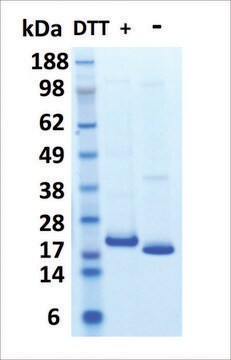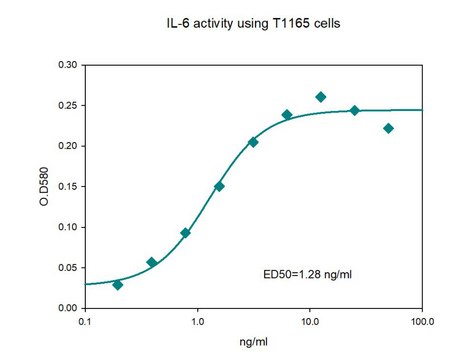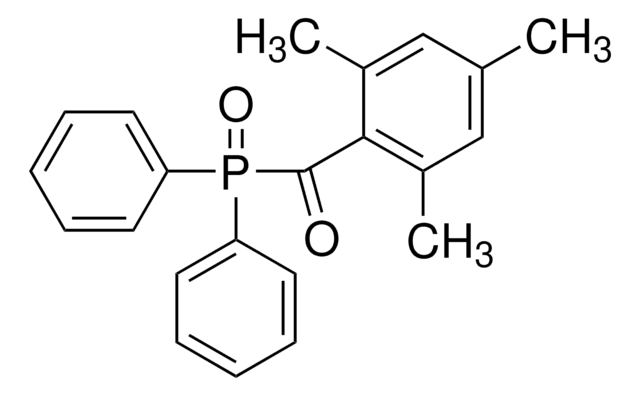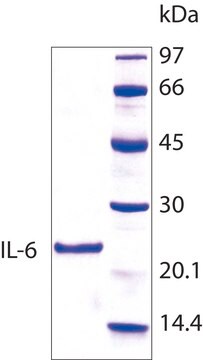SRP3178
TPO human
Animal-component free, recombinant, expressed in E. coli, ≥98% (SDS-PAGE), ≥98% (HPLC), suitable for cell culture
Synonim(y):
MGDF, Megakaryocyte colony-stimulating factor, Thrombopoietin, c-MPL Ligand
About This Item
Polecane produkty
pochodzenie biologiczne
human
rekombinowane
expressed in E. coli
Próba
≥98% (HPLC)
≥98% (SDS-PAGE)
Postać
lyophilized
siła działania
≤1.0 ng/mL ED50
masa cząsteczkowa
18.6 kDa
opakowanie
pkg of 10 μg
metody
cell culture | mammalian: suitable
zanieczyszczenia
<0.1 EU/μg endotoxin, tested
kolor
white
numer dostępu UniProt
Warunki transportu
wet ice
temp. przechowywania
−20°C
informacje o genach
human ... THPO(7066)
Opis ogólny
Działania biochem./fizjol.
Sekwencja
Postać fizyczna
Rekonstytucja
Kod klasy składowania
11 - Combustible Solids
Klasa zagrożenia wodnego (WGK)
WGK 3
Temperatura zapłonu (°F)
Not applicable
Temperatura zapłonu (°C)
Not applicable
Certyfikaty analizy (CoA)
Poszukaj Certyfikaty analizy (CoA), wpisując numer partii/serii produktów. Numery serii i partii można znaleźć na etykiecie produktu po słowach „seria” lub „partia”.
Masz już ten produkt?
Dokumenty związane z niedawno zakupionymi produktami zostały zamieszczone w Bibliotece dokumentów.
Klienci oglądali również te produkty
Produkty
Read article on hematopoietic cytokines and hematopoiesis
Wymieniono cytokiny, których głównym działaniem wydaje się być stymulacja lub regulacja komórek krwiotwórczych, w tym GM-CSF, G-CSF, M-CSF, interleukiny, EPO i TPO.
Nasz zespół naukowców ma doświadczenie we wszystkich obszarach badań, w tym w naukach przyrodniczych, materiałoznawstwie, syntezie chemicznej, chromatografii, analityce i wielu innych dziedzinach.
Skontaktuj się z zespołem ds. pomocy technicznej










